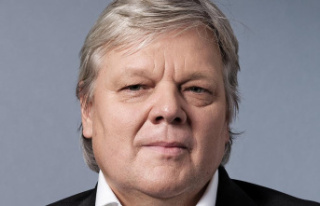A few days after the destruction of memorial trees near the former Nazi concentration camp in Buchenwald, damaged trees in memory of concentration camp victims were discovered not far from Weimar. The two chestnuts are on a path near Schöndorf, a district of Weimar near the camp, as the managing director of the Lebenshilfe-Werk Weimar/Apolda, Rola Zimmer, told the German Press Agency on Saturday. Local women had seen the damage that morning. The police have been informed. The state operations center confirmed this.
The facts are currently being examined by the State Criminal Police Office, emergency services are on site, said a spokesman. Further details were not known on Saturday. Schöndorf is a few kilometers away from the former concentration camp. According to Zimmer, the spot where the damaged trees were found is part of a route of the "death marches" of concentration camp prisoners.
The term stands for the evacuation of the camp, which the National Socialists had begun shortly before its liberation in early April 1945. Thousands of prisoners were herded towards other concentration camps such as Flossenbürg and Dachau, many did not survive.
A few days ago, seven memorial trees for concentration camp victims were cut down by unknown persons at another location near the memorial. The act near the route of the former Buchenwald railway, with which people from all over Europe were brought to the concentration camp by the National Socialists, became known on Wednesday. It has also caused international outrage.
The trees, like those discovered on Saturday, belonged to a memorial project "1000 beeches" coordinated by the Lebenshilfe-Werk. Trees have been planted here for victims of National Socialism every year since 1999.












